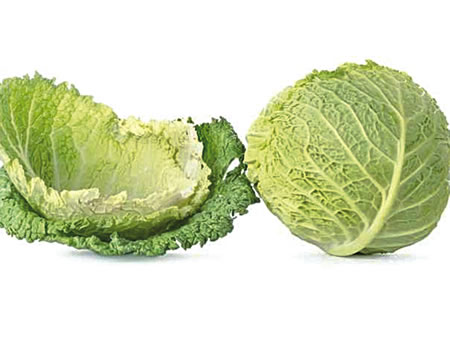
For breastfeeding mothers, it is not uncommon to experience an episode of engorgement. This happens when the breasts are making more milk than it can empty, one reason why mothers are advised to feed the baby frequently.
At times, engorgement becomes unavoidable and this leads to heaviness and hardness in the breasts. But there are a few old-school home remedies to try to relieve this condition or else it could lead to painful breasts and soreness due to blocked milk ducts. This includes the use of ginger poultice and cabbage leaves.
ALSO READ: Fayose turns 58, dedicates birthday to ‘freeing Nigerians from servitude under APC’
Amazingly, experts in Egypt had also corroborated the effectiveness of cabbage leaves compress in relieving breast swelling and engorgement. The study enrolled 100 mothers in the Post-natal ward of Obstetrics and Gynaecology department at Benha University Hospital, Egypt.
It involved Amany Ahmed Mohamed Masoud in conjunction with Dr Galal Ahmed El-Kholy and Dr Soad Abd-Elsalam Ramadan at Benha University.
These are new mothers within five days of giving birth with the complaints of breast engorgement and willingness to participate in the study that spanned from January 2017 to June 2017.
The women were randomly assigned in two groups (50 for each). One group served as the control group and then the next 50 women were included in the cabbage.
Cabbage leaves were refrigerated in the freezer for approximately 20 to 30 minutes before application or cabbage may be applied warm at room temperature.
Cabbage leaves applied directly to breasts, wearing them inside the bra. Cabbage leaves were placed inside the women bra for 15 to 20 minutes. Remove wilted leaves and reapply fresh leaves. The duration of each intervention was 15 to 20 minutes.
All the women in the study group were evaluated for the levels of breast engorgement, symptoms and pain first at the pre-intervention phase; secondary, after three days of intervention and, finally after five days of intervention.
Comparing the incidence of breast engorgement, less than quarter of mothers only reported breast engorgement in the study group whereas the half of mother in the Control group, which shows a remarkable decrease in the incidence of breast engorgement in the former group.
Also, there was a statistically significant difference between the control and study symptoms and levels of breast engorgement for the two groups. The methods of nursing care (cabbage leaves compresses) for the management of breast engorgement was effective.
Pain score for the cabbage group reduced more than half. While the group who use routine care, their pain score reduced less than third during the post-intervention.
Engorgement scores decreased more than half after three days than at the beginning of the study and disappear on the fifth day, showing that cabbage leaves were effective in reducing the breast engorgement than the routine care.
Previous studies found that cabbage leaves were preferred by the mothers. The advantage of using cabbage leaves is its low cost and convenience as compared to other medical regimens.
Breast engorgement and injury to the nipple are complications associated with breastfeeding and considered as the most significant factor impacting on breastfeeding in the first weeks of motherhood.
Worldwide, the incidence rate of breast engorgement that occurs between the third to fourth days of after childbirth. According to the World Health Organisation (WHO), approximately two-thirds of women experience at least moderate symptoms of breast engorgement.
The first signs of the engorgement are the swollen, firm and painful breasts. In more severe cases, the affected breast becomes very swollen, hard, shiny, and slightly lumpy when touched.
Cabbage is known to contain many chemical substances including mustard oil, magnesium and oxalate. Herbalists believe that cabbage has both antibiotic and anti-irritant properties.
Anecdotal reports support the value of cabbage (Brassica capitata) compress in reducing breast engorgement. Green, ordinary cabbage is preferable.
There is little evidence also that cabbage leaf compresses may work more quickly than ice packs or other treatments for moderate to severe engorgement.
Moreover, a ginger poultice is also an old-fashioned remedy! It is another type of warm compress. A freshly grated ginger is made into a poultice and holds it on the breast. The anti-inflammatory properties of this help relieve engorgement.





